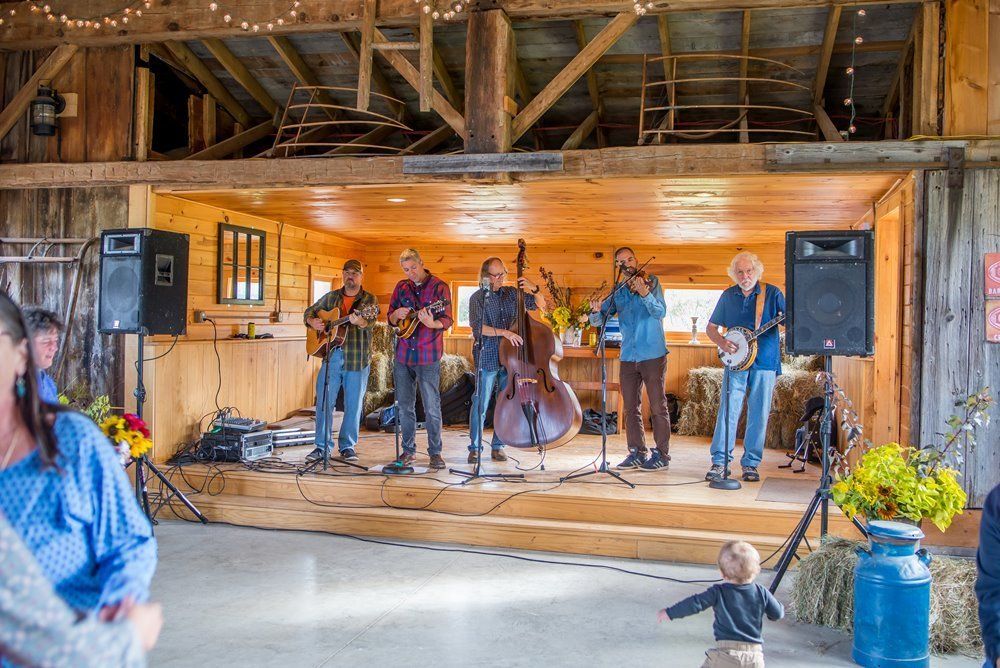Can Music Enhance Our Health and General Well-being?
Recently, researchers looked at the impact of music interventions on health-related quality of life and tried to answer the question about the best way to help make that shift toward release, relaxation, and rehabilitation. This recent systematic review and meta-analysis (a study of studies) showed that the use of music interventions (listening to music, singing, and music therapy) can create significant improvements in mental health, and smaller improvements in physical health–related quality of life. While the researchers found a positive impact on the psychological quality of life, they found no one best intervention or "dose" of music that works best for all people. (1)

Physical Health Benefits of Music
Reduces Anxiety and Stress
Music can have a relaxing effect on the body, lowering tension and anxiety levels. Listening to calm, soothing music has been found in studies to lower blood pressure, heart rate, and cortisol levels, all of which are stress markers. Music can also distract the mind from negative thoughts and worries, reducing anxiety.
Enhances Sleep Quality
Music has been demonstrated to offer several health and well-being benefits, including improved sleep quality. Listening to peaceful music before bed can help people fall asleep faster, sleep more deeply, and wake up feeling more refreshed, according to research. It is due to the potential of music to reduce stress and anxiety levels, which are frequently important factors in insomnia and other sleep disorders. Furthermore, specific genres of music, such as classical or contemplative music, can help slow down our breathing and pulse rate, promoting relaxation and deep sleep.
Additionally, listening to music while sleeping can assist in improving the quality of our sleep. Listening to calming music while sleeping has been demonstrated in studies to result in more extended periods of deep sleep and fewer disturbances during the night. It is especially advantageous for people with sleep disorders such as sleep apnea or restless leg syndrome. In general, including music in our nighttime ritual can be a simple and effective method to improve our sleep quality and overall health and well-being.
Improves Exercise Performance
Music can be a tremendous motivator during a workout, outdoors, or in the gym. Listening to lively, dynamic music during exercise has been demonstrated in studies to boost endurance, improve performance, and minimize perceived effort. It is because music can excite the brain and distract from emotions of exhaustion or discomfort.
Mental Health Benefits of Music
Enhances Mood
Music can elicit strong emotions, and listening to music that speaks to us can lift our spirits. Music has been found in studies to enhance dopamine levels in the brain, related to emotions of joy and contentment. Music can also assist in alleviating depressive symptoms by providing comfort and support. Also, on seasons like Christmas, music can be used to set the mood within the homes, especially when complimented by features such as a Christmas tree Burlington VT
Improves Cognitive Function
Music has been demonstrated to improve cognitive performance, especially in memory, attention, and language. The improvement in cognitive functions is because music stimulates numerous parts of the brain, including the prefrontal cortex, which controls executive function. Studies have found music improves cognitive function in learning, problem-solving, and decision-making tasks.
Reduces Dementia Symptoms
Music has been proven to help those with dementia to lessen symptoms such as agitation, anxiety, and depression. It is because music can evoke memories and emotions, offering comfort and familiarity. Music therapy has been demonstrated to improve cognitive function, communication, and overall quality of life in dementia patients.
Psychological Health Benefits of Music
Gives a Feeling of Connection
Studies have shown live music Burlington VT has a favorable effect on our mood and emotions, lowering feelings of tension, anxiety, and despair. Music has also been shown to boost cognitive function, such as memory and attention, and help relieve physical pain. Music can be a vital tool for bringing people together and building a sense of community in terms of connection.
Musical activities, such as singing in a chorus or performing in a band, have been demonstrated to boost social connection and emotions of belonging. Music can also help us connect with ourselves, allowing us to comprehend things better and express our feelings. Playing an instrument, singing, or simply listening to music can be a form of self-expression that can aid in processing and resolving challenging emotions.
Allows for Emotional Expression
Music can trigger strong emotional responses in its listeners. It can assist us in connecting with and expressing our feelings in ways that words cannot always. Listening to melancholy music, for example, can help us process feelings of sadness, grief, or loss. Listening to cheerful music can lift our spirits and encourage feelings of enthusiasm and positivity.
Studies have demonstrated music has physiological impacts on the body, such as lowering stress and anxiety, lowering blood pressure and heart rate, and even alleviating pain. It is thought to occur because music causes the release of endorphins, the body's natural feel-good hormones.
Aside from listening to music, playing an instrument or singing can help with emotional expression and overall well-being. Learning and practicing a new talent can improve cognitive function and boost self-esteem while making music can be a powerful form of self-expression and release.
Enhances Social Skills
Music is a potent medium that may elicit emotions, influence mood, and even alter brain activity. Music has been found in studies to reduce stress and anxiety, increase mood, and even stimulate the immune system. Music, whether played alone or with others, can have similar effects and improve fine motor skills and coordination.
In terms of social skills, music can encourage social connection and develop a sense of community. Group music activities that demand cooperation and communication, such as singing in a chorus or playing in a band, can improve teamwork and collaboration skills. Music activities can also create a sense of belonging and alleviate loneliness and social isolation.
Adding music into our lives, whether by listening or performing, has many potential benefits, and it can indeed contribute to enhanced health and well-being, including increasing our social skills.

About the author
Mike Isham
Meet Mike Isham, the heart and soul behind Isham Family Farm - a charming wedding and barn venue nestled in the beautiful Williston, VT. With over decades of experience in the wedding industry, Mike has witnessed countless couples exchange their vows and start their happily-ever-after at his family's farm.
For Mike, helping couples create their dream wedding is more than just a job - it's a passion. He takes great pride in providing a warm and welcoming atmosphere for every guest, and ensuring that every detail is taken care of. When you choose Isham Family Farm for your special day, you're not just getting a venue - you're getting a family who genuinely cares about making your wedding day unforgettable.












